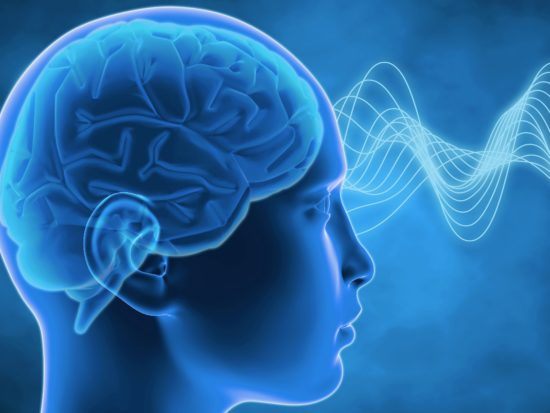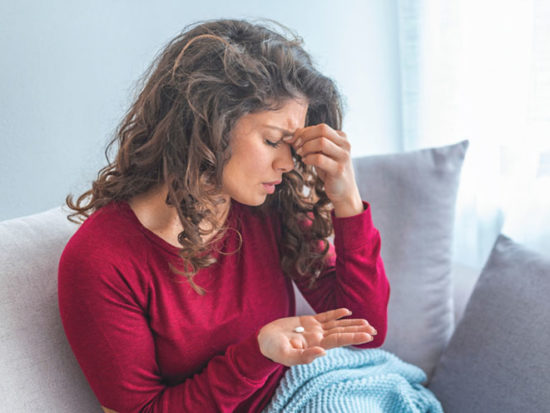Antidepressants are everywhere these days, and it’s no wonder: Depression among adults in the United States tripled in the early months of the COVID pandemic. And new research shows that this only increased in 2021, with depression affecting one in every three American adults.
However, when it comes to treating depression, what works for one person may not work for another. And while the right antidepressant can be a lifesaver for many people, it’s also important to understand that medication is not the complete answer when treating depression or anxiety.
In fact, many people find that antidepressants aren’t working as they’d hoped, despite trying multiple different medications. Moreover, the more combinations of these drugs some people try, the less likely they will respond positively. Others experience one or more side effects commonly associated with these drugs.
Of course, it’s vital to speak with a mental health professional when deciding whether antidepressants are right for you. Yet, a better option might be to combine medication with non-invasive treatments, or if possible, to eliminate the medications.
Call our New Patient Coordinator at
Or fill in the form below and we will contact you.
Antidepressant Side Effects

- Headache
- Nausea
- Dry mouth
- Insomnia
- Dizziness
- Diarrhea or constipation
- Sexual problems
- Fatigue
- Weight gain
- Tremors
- Increased sweating
In some instances, antidepressant use can lead to more severe conditions, including suicidal thoughts. And those thoughts must be taken seriously: Suicide is the tenth leading cause of death in the U.S. and has been on the rise for teens and adults. The most recent statistics show that 8.9 percent of youth in grades 9-12 reported that they had made at least one suicide attempt in the past 12 months.
If you are feeling suicidal, please call 911. You can also call the National Suicide Prevention Lifeline at 1-800-273-TALK (1-800-273-8255). Additionally, we have listed some resources at the end of this article that may help.
The Brain and Depression

That’s why many doctors and mental health professionals prescribe selective serotonin reuptake inhibitors, or SSRIs, to treat depression. SSRIs work by blocking the reabsorption of serotonin into the nerve cells (neurons), so it’s available to improve the transmission of messages between neurons and thus regulate emotion.
SSRIs have been successfully used for years to treat depression. However, they are not without their side effects, as we’ve already mentioned. That’s why non-pharmaceutical alternatives are crucial in the overall treatment of depression.
A Drug-free Alternative to Antidepressants

The first step of MeRT is performing a qEEG, or brain map, to find any imbalance in brainwave activity. That’s because patients who are clinically depressed have markers that we can see in their EEG studies. Once we identify the imbalance, we can strengthen the brainwave activity through a highly personalized treatment plan using TMS.
Treatment for depression usually takes four to eight weeks and, in many cases, can permanently relieve symptoms of depression, anxiety, and more. In fact, once we complete treatment for depression, there is not usually a need for follow-up treatment.
And what’s exciting—and provides hope for so many—is that some people have reported being able to come off their medications entirely after receiving MeRT treatment.
So yes, there is an alternative to antidepressants. And it can make all the difference to your quality of life and long-term happiness and success.
Additional Mental Health Resources
- Call 911
- Disaster Preparedness, Response, and Recovery: 1-800-985-5990 (press 2 for Spanish), or text TalkWithUs for English or Hablanos for Spanish to 66746. Spanish speakers from Puerto Rico can text or Hablanos at 1-787-339-2663.
- Suicide Prevention Lifeline: 1-800-273-TALK (8255) for English, 1-888-628-9454 for Spanish, or Lifeline Crisis Chat
- Domestic Violence Hotline: 1-800-799-7233 or text LOVEIS to 22522
- Child Abuse Hotline: 1-800-4AChild (1-800-422-4453) or text 1-800-422-4453
- Sexual Assault Hotline: 1-800-656-HOPE (4673) or Online Chat
- The Eldercare Locator: 1-800-677-1116 TTY Instructions
- Veteran’s Crisis Line: 1-800-273-TALK (8255) or Crisis Chat or text: 8388255
Find a health care provider or treatment for substance use disorder and mental health:
- SAMHSA’s National Helpline: 1-800-662-HELP (4357) and TTY 1-800-487-4889
- Treatment Services Locator Website
- Interactive Map of Selected Federally Qualified Health Centers
Contact Our New Patient Coordinator For Additional Information
We are here to answer any questions you have about MeRT or The Brain Treatment Center in Dallas. We can also book you for your initial testing and a consultation with Dr. Miller if you are interested in seeing how this treatment can specifically help you with your mental health.
Call our New Patient Coordinator at
Or fill in the form below and we will contact you.
Contact Form
"*" indicates required fields
